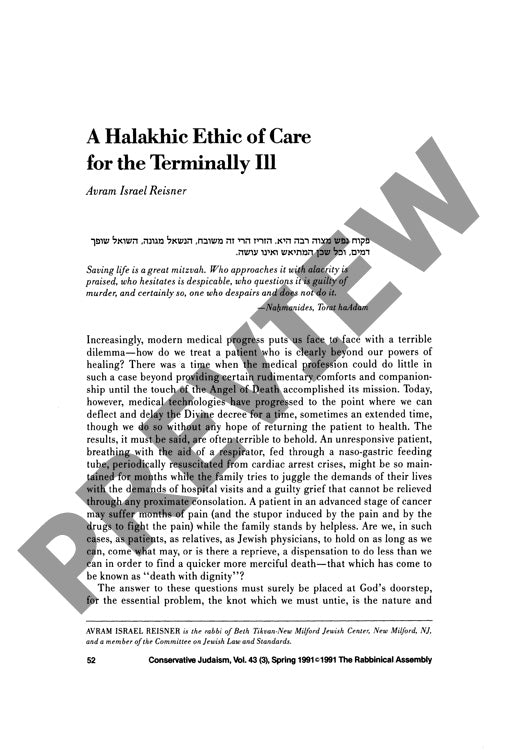A Halakhic Ethic of Care for the Termina
Couldn't load pickup availability
When modern medical technologies clash with ancient Jewish laws on death and dying, complex ethical questions emerge about prolonging life versus extending the dying process. Traditional halakhic sources like *Sefer Hasidim* and *Shulhan Arukh* offer surprisingly relevant guidance for contemporary end-of-life care, particularly through their laws concerning the *goses* (dying person). Through classical rabbinic analysis, a clear distinction emerges between biological and mechanical criteria for medical intervention. While Judaism's commitment to preserving life remains absolute, the tradition permits withdrawing impediments to natural death when treatments become futile. Organic interventions like nutrition, hydration, and medication warrant continuation, but mechanical life-support systems may be discontinued when they merely delay inevitable death. The halakhic framework acknowledges patient autonomy within religious parameters, especially regarding treatments with uncertain outcomes or significant risks. This analysis yields practical guidelines for managing nutrition, life support, CPR, transfusions, and pain control in terminal care, demonstrating how Jewish law creates a coherent ethical framework that both honors life's sanctity and accepts death's natural progression.

More Information
-
Physical Description
-
Publication Information
Published 1991
ISBN
-
Publication Credits
Avram Reisner

